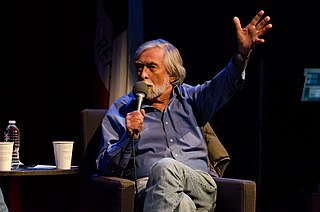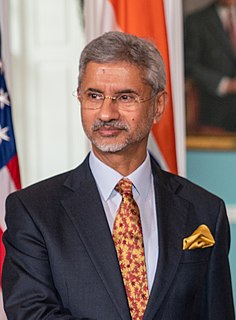A Quote by Narendra Modi
Today the world has to accept what India has been saying about terrorism. India's dialogue on terrorism, the losses India has suffered due to terrorism, the losses suffered by humanity, the world is now acknowledging that.
Related Quotes
Now I don't have to explain to the world about India's position. The world is unanimously appreciating India's position. And the world is seeing that Pakistan is finding it difficult to respond. If we had become an obstacle, then we would have had to explain to the world that we are not that obstacle. Now we don't have to explain to the world. The world knows our intentions. Like on the issue of terrorism, the world never bought India's theory on terrorism. They would sometime dismiss it by saying that it's your law and order problem.
I think NATO is obsolete. NATO was done at a time you had the Soviet Union, which was obviously larger - much larger than Russia is today. I'm not saying Russia is not a threat. But we have other threats. We have the threat of terrorism. And NATO doesn't discuss terrorism. NATO's not meant for terrorism. NATO doesn't have the right countries in it for terrorism.
You can't think about terrorism without thinking about Palestinian terrorism. Palestinians began international terrorism. It started with them in 1968. They used it as the first resort, not the last resort. They invented it, they perfected it, they benefited from it and they taught the world how to use it and that it would be successful.




























